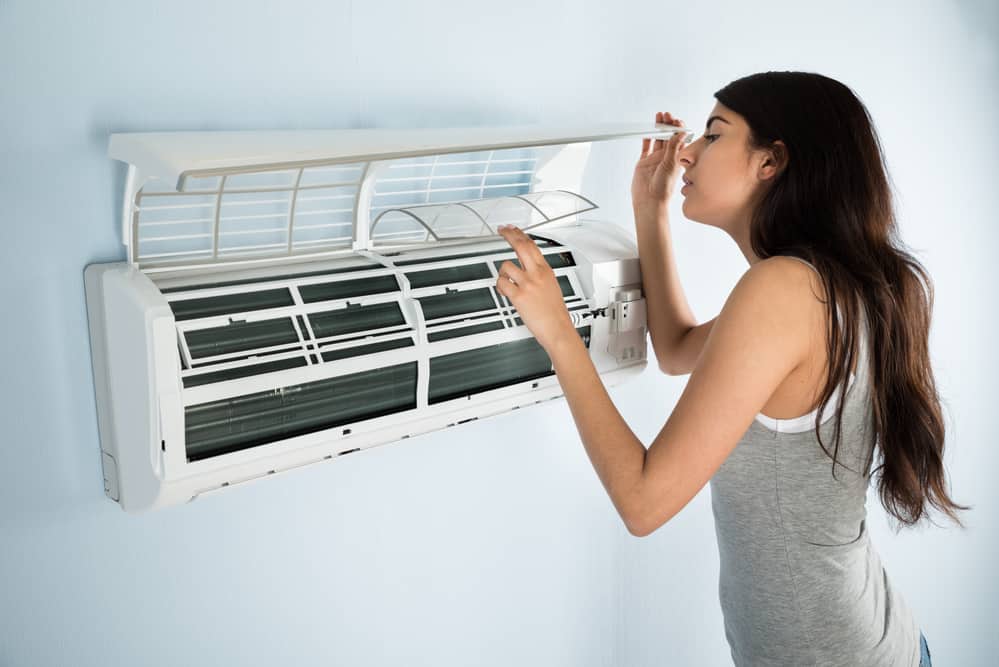
If you suffer from allergies, chances are that you are not as happy that it is spring as the rest of us are. Pollen from all the flowering plants along with other regular allergens can make your life a nightmare. However, it is also the time when most of us start using our air conditioning units, and that can save your day by removing the allergens from the air.
You should know by now that you need to perform general maintenance before you start using your AC unit. Find a good AC maintenance service to help you.
Air Filters’ Main Purpose
Even though you may assume that air filters are designed to filter your air, that is not their primary function. They are, in fact, supposed to protect the delicate machinery inside your AC unit from the dust and debris. The fact that they also clean your air from this same debris is just an added bonus.
However, you need to keep in mind that your air filters need to be clean in order to be effective. That means that you will have to replace or clean your filter about once a month in order to keep its effectiveness both at protecting your AC unit and cleaning your air.
Air Filter Effectiveness
Not all air filters are the same, which is obvious from their price. They differ in their MERV rating. MERV stands for Minimum Efficiency Reporting Value. It measures how effective the filter is at stopping various debris.
Depending on the type if your AC unit, you will have one or more filter choices. Depending on your needs, choose one of the following types.
MERV 1-4
These air filters are the cheapest and therefore the least effective. They are typically installed on window AC units in residential buildings. Even though they are deemed as the least effective, they are still good at stopping larger particles, typically larger than 10 micrometers. This includes the majority of the house dust and lint.
It is also capable of stopping larger pollen particles, as well as other large debris like sawdust and soot, as well as aerosolized spray paint and similar chemicals. It is also fairly effective against dust mites, which are responsible for a large portion of asthma and allergic reactions.
MERV 5-8
These filters are the most common in HVAC systems in residential, as well as some commercial areas. They are capable of capturing more debris than the previous category of filters, but the air flow is not obstructed by the density of the filter.
The diameter of the debris this filter is capable of stopping is in the range of 3 and 10 micrometers, which includes a lot more allergenic substances, like fungal spores and mold particles, as well as dust mite debris and chemical compounds like hair spray. Some manufacturers claim that these filters can capture even some bacteria, however, it is not an effective protection against most bacteria, since they can range in size.
MERV 9-12
These air filters are usually marketed as hypoallergenic to people who suffer from extreme allergies. These filters are very dense, so they may require you to have an additional blower fan to be able to circulate the air properly. However, the benefits to people who need these filters in easily enough to subject your AC unit to the modification. Just make sure to only trust certified air conditioning services to tamper with the expensive equipment.
These filters are so dense that they can stop particles as small as 1 micrometer. That puts it firmly in the microscopic range, meaning that it can capture many types of bacteria in addition to every other kind of debris mentioned previously. What’s more, the filter is so densely woven that it can capture cigarette smoke as well as pet dander, which tends to be really small and cause a large portion of allergies and asthma attacks.
MERV 13-16
These filters are not intended to be used by general public in the residential settings. In fact, these filters are used in hospitals and doctors’ offices, seeing how they are effective at capturing debris smaller than 1 micrometer, to the diameter of 0.3 micrometers. That is small enough to capture the vast majority of bacteria, as well as some kinds of viruses.
MERV 17-20
Finally, the finest air filters in the world are produced to capture debris smaller than 0.3 micrometers, which includes all viruses, aerosolized sea salt, and even fine carbon dust. These filters aren’t available to purchase, as they are used largely in cleanrooms for electronics manufacturing, as well as for pharmaceuticals companies which require completely sterile environments without contamination.
Regardless of the type of filter you choose for your air conditioning system, make sure that you clean or replace it regularly in order to get the most from it.





